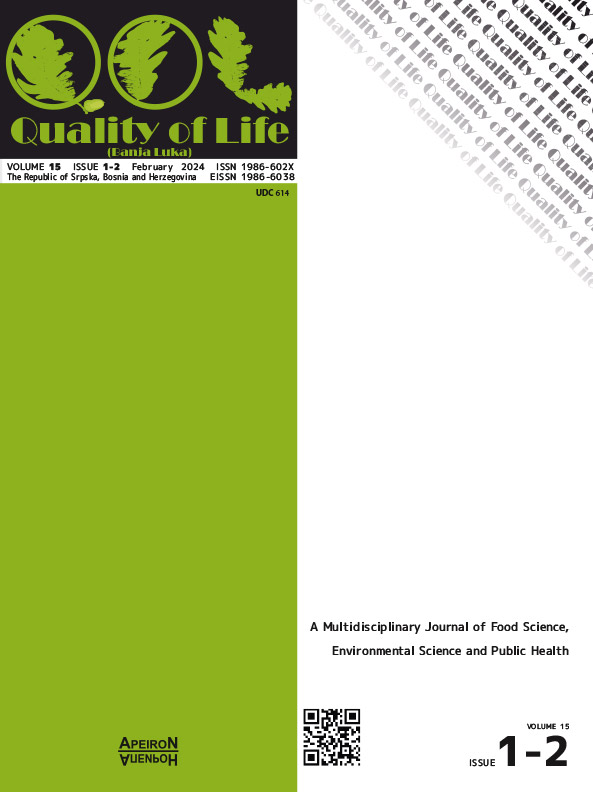Optimization of Oil Extraction Process from White Mustard Seeds Using Response Surface Methodology
DOI:
https://doi.org/10.7251/QOL2401005SKeywords:
white mustard seeds, extraction, RSM optimization, influence of process parameters, 3D response surfaceAbstract
In this study, response surface methodology (RSM) was used for the determination of the effect of two process parameters (extraction temperature and extraction time) and their interaction on the yield of the total extract from white mustard seeds (Sinapis alba l.), as well as the creation of a mathematical model, 3D response surface, and the establishment of an optimal extraction region. Ethanol 96% as a green solvent was employed to separate biological compounds from white mustard (Sinapis alba l.) seeds by applying ultrasound-assisted extraction (UAE). UAE was performed at the temperature of 25, 30, and 35℃ for a duration of 30, 60, and 90 min. UAE as a modern extraction technique showed great performance, while the ethanol solvent provided a high yield of compounds. The utilized RSM design adequately fit the experimental data with a high coefficient of determination (R2=0.9365) and low mean absolute error (MAE=1.12242). Estimated effects for the yield of the total extract showed that the extraction time, the temperature, and the interaction between time and temperature influenced positively, while the time-squared and the temperature-squared influenced negativity on the yield of the total extract. Analysis of variance showed that 2 effects have P-values less than 0.05. The optimal yield of the total extracted oil was 15.19% at the temperature of 35℃ for a duration of 70.3 min.
